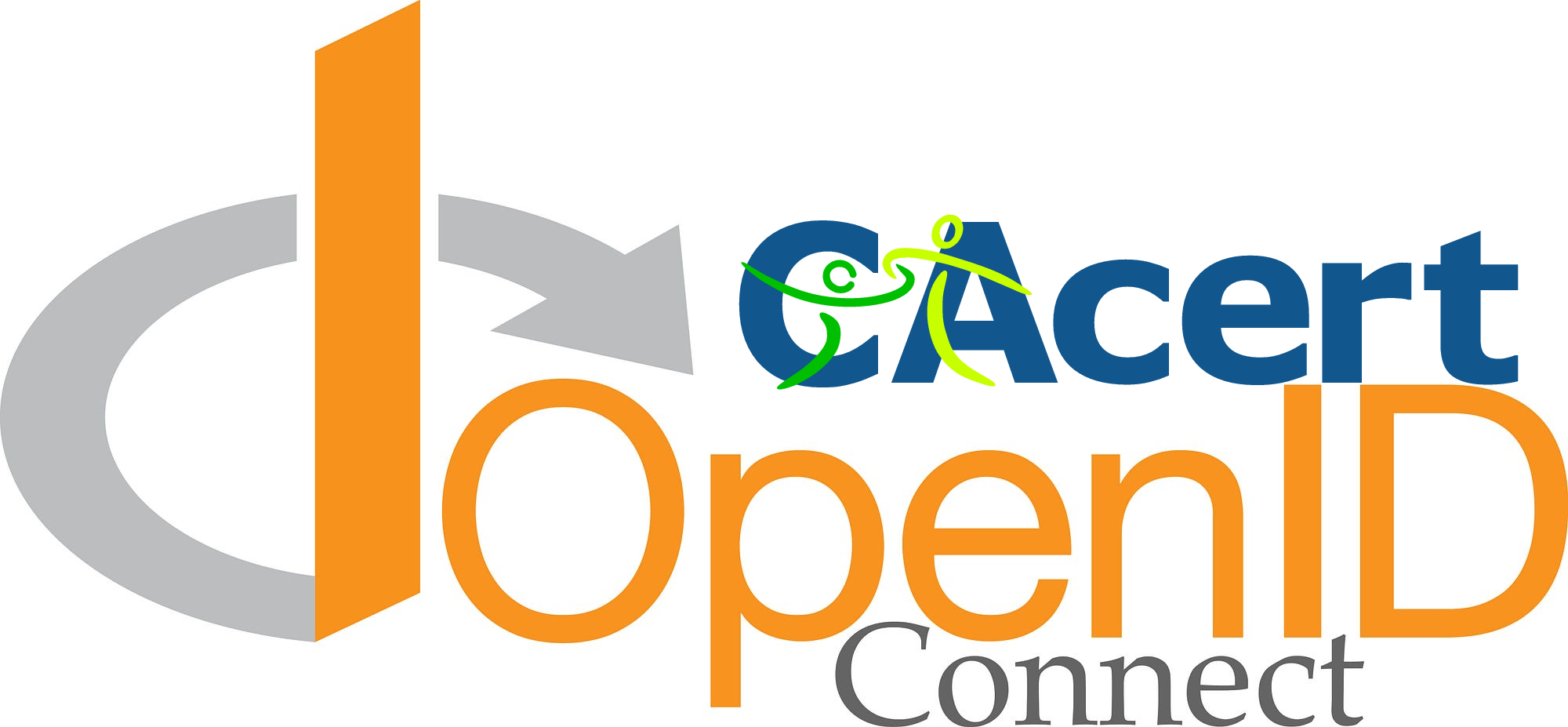català | česky | dansk | deutsch | english | español | زبان فارسی | français | italiano | polski | nederlands | português
CAcert's OpenID Connect
 OpenID Connect est un cadre d'identité distribué au-dessus d'OAuth qui permet non seulement une authentification sûre, mais permet également aux sites de déplacer les données distribuées sur l'internet et de fournir de meilleurs services.
OpenID Connect est un cadre d'identité distribué au-dessus d'OAuth qui permet non seulement une authentification sûre, mais permet également aux sites de déplacer les données distribuées sur l'internet et de fournir de meilleurs services.
Quelle est la différence entre OpenID Connect, OAuth 2.0 et SAML (Security Assertion Markup Language)
La principale différence entre les trois normes OAuth 2.0, OpenID Connect et (SAML) est que OAuth 2.0 est un cadre qui contrôle l'autorisation d'accès aux ressources protégées (par exemple, une application ou certains fichiers), tandis qu'OpenID Connect et SAML sont des normes industrielles pour l'authentification fédérée.
What is the difference in the use of OpenID Connect, OAuth 2.0 and Security Assertion Markup Language (SAML)?
OAuth 2.0 is therefore used in completely different situations than the other two standards OpenID Connect or SAML, but can be used in parallel with OpenID Connect or SAML.
When organisations use OpenID Connect or SAML independently, they can authenticate users and provide single sign-on (SSO). OpenID Connect is based on the OAuth 2.0 protocol and uses an additional JSON Web Token (JWT), the so-called ID token. This is used to standardise optional elements such as areas and end device recognition.
|
OAuth 2.0 |
OpenID |
SAML |
used in organisations to allow users to log in to multiple applications with a single login process |
✓ |
⛌ |
⛌ |
logging in users to consumer websites and mobile apps |
⛌ |
✓ |
✓ |
optional elements such as areas and end device recognition |
⛌ |
✓ |
⛌ |
OpenID Connect tools from CAcert
further reading and free tools see here: CAcertOpenIDConnect
